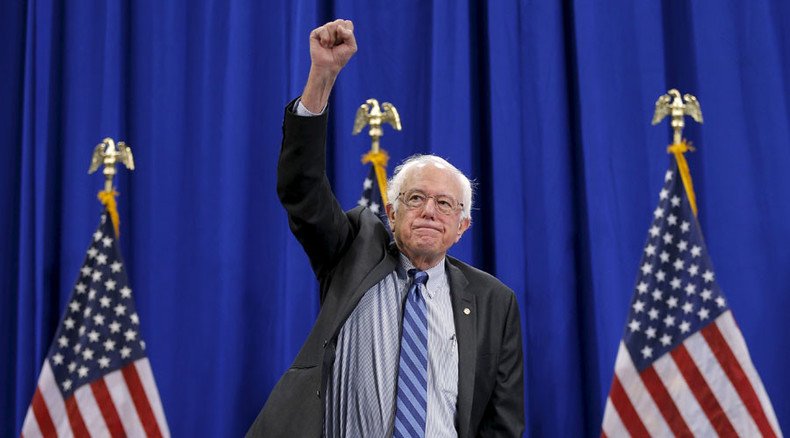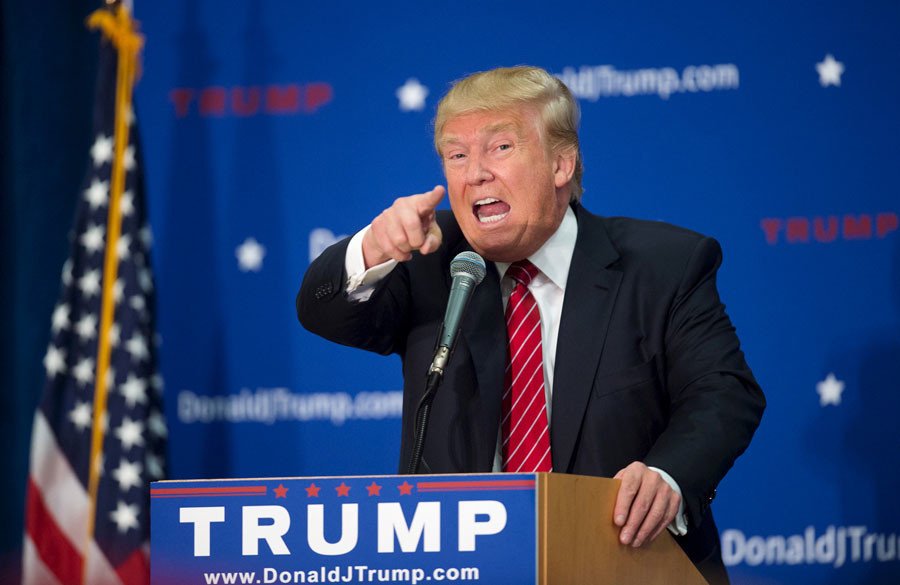Presidential campaign 2016: US media 'congenitally allergic' to issues of substance

The cardinal rule of US political media games: if you want attention, you have to attack and smash your opponent, says TJ Walker, conservative media analyst and commentator.
Democratic presidential candidate Bernie Sanders raised $26 million in the third quarter of the year, placing him just $2 million short of the frontrunner, Hillary Clinton. Yet Sanders does not seem to be attracting media attention with his message.
RT: Bernie Sanders is going strong in the national polls and just had a record crowd in Boston. Why is it then that the media coverage he gets doesn’t necessarily reflect that popularity?
TJ Walker: Bernie Sanders isn’t getting any media coverage in America because he is violating the cardinal rule of our political media game here: if you want attention, you have to attack, smash, bash your opponent. Who is getting all the media attention? It is Donald Trump. Why does he get it? Because he says anybody who disagrees with him is a moron, an idiot, a fool, a clown.
Unfortunately, the media just can’t pass it up. They find it irresistible. And most people in the American media are just congenitally allergic to substance or policy discussions, they latch onto whoever attacks the most. Bernie Sanders’ problem is: he might not agree with Hillary Clinton on everything or even most things, but he is not willing to attack her, call her a stooge, call her a fool or an idiot.
RT: How easy is it today for voters to get information needed on the candidate?
TW: Voters have an all-time low opinion of the American media. Although, remember, voters have never had more options for getting coverage on political candidates. So, if you are an American voter it has never been easier, for example, to watch RT or Al Jazeera, or get The London Telegraph on your website.
It is kind of a golden era for a true political junky because you have millions of resources at your disposal, plus you can always go directly to the candidate’s website and you can read every single position paper you want from Bernie Sanders, Hillary Clinton or from Donald Trump.
READ MORE: Bernie Sanders raises $26 million, closes gap with Hillary Clinton
RT: Donald Trump and Hillary Clinton are always in the spotlight whether it is Trump’s numerous controversial statements or Hillary’s email scandal and recent SNL skit. As a candidate, do you have to strike the right balance between style and substance as a candidate or is it more about being controversial to get people’s attention?
TW: In politics not all publicity is good publicity, because at the end of the day you still have to get a majority of the vote plus one, or as many votes as your opponent plus one more vote. Donald Trump famously wrote in his first big selling book ‘The Art of the Deal’ that he believes that great publicity is the best of all, but bad publicity is better than no publicity because in the private sector business world if you do not have the 99 percent of market share, if you have one percent of the market share of all real estate, you are a multibillionaire.
In a narrow political primary situation that Trump is in now, where you have 17 or 16 candidates, if 90 percent of the people in your own party hate you, but 10 percent love you, well you could win the nomination. That’s why Donald Trump could win the nomination even though he is not liked by most in the party. But that doesn’t get you into the White House; you simply do not get to be president if the majority of the voters think you are a clown.

RT: When a candidate says something offensive or has a public slip-up on a major policy issue that gets media headlines with the idea that these gaffes could affect their campaign negatively. But do you think these slip-ups can actually generate more publicity and positive results? Bernie Sanders himself said that he’d get tons of coverage if he were to slip on a banana peel for instance…
TW: Let’s not forget, Jeb Bush is essentially getting ‘you slipped on a banana peel’ coverage every single day. Almost all news about Jeb Bush is bad news. The media is just loving the story about how this guy who had his Daddy hand him everything, his brother hand him everything is now slipping on the political banana peel. Every day his poll numbers go down. Every day there is another story about disgruntled fundraisers who’ve said: “Hey, maybe we want our $100 million back.” Every day there is a story about how Jeb Bush is failing to meet the expectations of all the political insiders who thought he would just sort of suck up all the support of the media and the establishment and rise to the top. Every day it seems like is going from first to second, then third… even seventh in the polls in some early states.
RT: Do you think the lack of Sanders coverage could also be a sign of corporate bias because his Democratic socialist platform may suggest reforms that they don’t necessarily want to see?
TW: Bernie Sanders has several problems when it comes to getting media attention. For starters, he is running for the Democratic nomination. He has never been a Democrat; he has never actually run for public office or served in public office as a Democrat. So, it is frankly hard for any candidate to be taken seriously running for a party nomination if he has never served in that party and never openly embraced that party’s label.
Certainly, there are political views that Bernie Sanders has that conservatives and corporate interests don’t like. There is no doubt about that. But he does have other problems that are not related to that. The fact is: he is running for a party nomination that he has never been a member of. And he has virtually zero support in terms of endorsements from Democratic members of Congress, the political establishment. Those do mean things in presidential races. You can argue that they shouldn’t, but when political reporters are trying to figure out who to cover and who not to cover they do look at those things. Now they are giving him credit for having a tremendous fundraising pitch: he raised almost as much money as Hillary Clinton did. So, he is starting to get more attention.
LISTEN MORE:
The statements, views and opinions expressed in this column are solely those of the author and do not necessarily represent those of RT.












